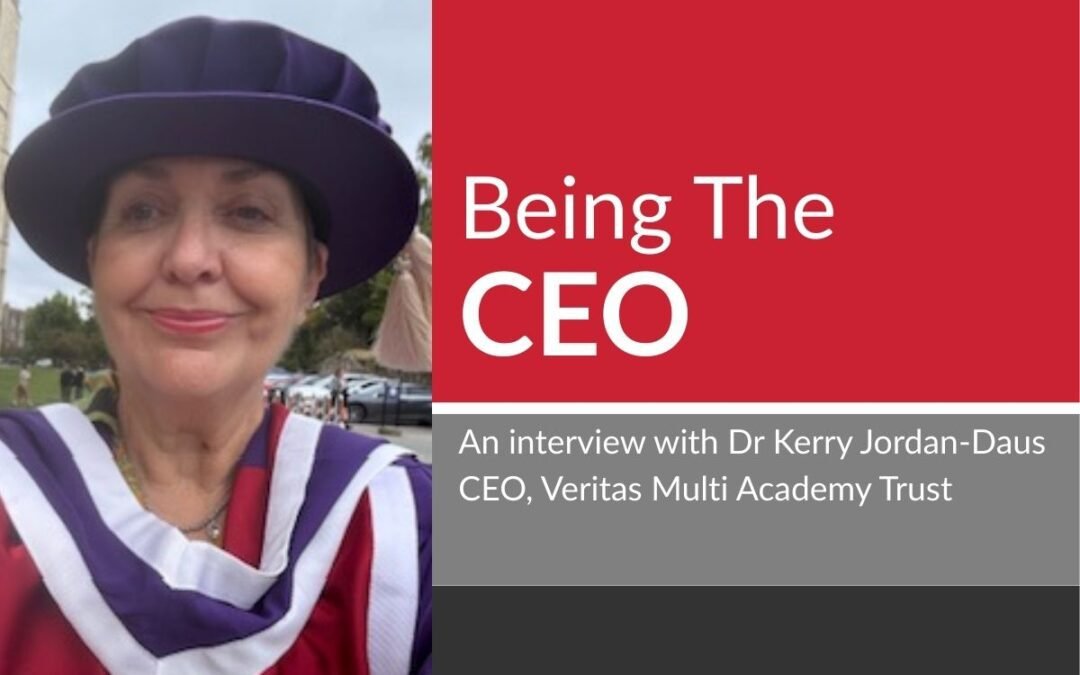Michael Pain ; author of ‘Being The CEO’ and founder/Chair of Forum Strategy
It’s that time of year again when governing boards are considering the performance management process for their Chief Executives. As someone who has spent a lot of time studying and writing about the CEO role in academy trusts, and advising boards on performance management, I continue to be struck by some key ‘do’s’ and ‘don’ts’ when embarking on such an important process.
The first thing to be mindful of is how crucial the performance management process is to the role of the board and the work of the Chief Executive. The successful translation of vision into strategic delivery fundamentally depends on timely, robust and focused performance management; as does the CEO’s ability to focus on the right things and not to be constantly reactive. Done well, good CEO performance management can be the making of a CEO’s tenure, and help enormously in putting an academy trust on the path to sustainable and successful development.
Here are a few of the tips I regularly share with boards:
1. The performance management of a CEO is not an ‘upgraded’ version of the performance management of a head teacher. It should reflect the significant leap into the CEO role and your wider strategic ambitions for the organisation. Some boards have a tendency – either through lack of understanding or too much reverence to national metrics – to replicate the content of headteacher performance management at CEO level. This is a mistake. Yes, school performance data and government set KPIs are important measures, but they are also one (crucial) aspect of measuring sustainable organisational success at scale. The CEO’s performance management should reflect the 6 key dimensions of the role as set out in ‘Being The CEO’ – including, the quality of reporting to the board; the employer of choice strategy; the development and impact of key external partnerships; the sustainable investment of resources, and the enabling of systems and capacity for improvement at scale. When setting targets, it is important to recognise the CEO is not a headteacher of multiple schools, but a leader of a large public sector organisation, nurturing and aligning a wide range of factors to – ultimately – secure educational success.
2. CEO performance management should be based on a wide range of measures, not simply top down KPIs set by government. Performance measures should, indeed, reflect the wider measures of organisational success set by the trust board. These can include, trends in terms of staff and parental feedback survey results; 360 feedback on CEO performance from key stakeholders and partners; staff recruitment and retention metrics; benchmarked financial performance; and – increasingly – performance against diversity, sustainability, and wellbeing measures that are becoming so central to organisational reputation and success. When working with boards on setting performance management targets, I want to ensure that the targets truly reflect their vision and ambition for organisation – often many boards need to revisit strategy and even vision before embarking on the target setting with the CEO. When setting measures, it is important to use a wide range of robust and insightful sources to secure a well-rounded view of the CEOs performance over time (using trend analysis), rather than simply ‘top down’ narrow measures confined to a particular year. This more rounded can be considered alongside and informed by the trust board’s wider pure accountability measures.
3. Don’t go overboard on the number of goals and targets. As we have written previously for our members at Forum Strategy, CEOs tend to thrive when set a small number of strategic priorities: Being The CEO: The importance of goals | Forum Strategy. According to Mark Helow, founder of ‘The CEO Project’: “The top CEOs spend a lot of their time on a few things. They spend more than half their time on what they determine as their three top priorities. Contrast this with as average CEO who will spend time on a whole myriad of priorities and never gets to many of them. This ability to focus is one of the key things that sets top CEOs apart. They will focus on a small number of priorities at one time – they will not give up and they will not get distracted.” Boards – consulting with their CEO – must be discerning about the strategic priorities they set, and the number of goals they set their CEO within any given year – ensuring they are focused and ambitious, yet realistic. When setting ambitious and realistic performance management targets, try to keep the number small, ensuring there is clear focus and prioritisation so a busy CEO knows exactly what matters and what the board wants from them in a given year.
4. Having a clear plan and structure to the performance management process is key. All too often we see boards approaching us in November or even December to ‘kick off’ the performance management process. Three months into a new academic year is far too late to set targets and give your CEO a clear steer on their priorities and objectives. Boards must treat the CEO’s performance management as one of the most important tasks of the year, the key bridge between vision and strategy and operational delivery – that means ensuring it is timely. From the outset it is is important that sufficient time is put aside for the Chair (and other trustees directly involved in performance management process) to provide the CEO with meaningful opportunity for dialogue and to put forward their views on the substance of the goals and targets, before agreeing them and then finalising them with the external adviser and the other board members. It’s also important that dates and processes for mid-year and end of-year review are agreed at the outset, and that these dates are protected in diaries. This is particularly important for the rest of the board, who should be informed and consulted at each stage; the process simply cannot fall into a set of cosy chats at a convenient time for the Chair and CEO. A performance management process defined by transparency, consultation, planning and process is essential for good corporate governance and to ensure the CEO feels sufficiently supported.
5. Ensure professional development is built in. One of the key misunderstandings about the CEO role is that the person must have all the answers, be the font of all wisdom, and show others the way. This could not be further from the truth. In an uncertain and unstable context, where CEOs are facing new and unprecedented challenges; accessing professional development has never been more important. Indeed, academy CEOs are leaders of learning organisations and should model and embody a commitment to learning. It’s also inspiring and rejuvenating for CEOs to take time on the balcony and away from the dance floor, learning from and networking with others who can add value to their leadership efforts. Always ensure that the priorities and goals are reinforced by high quality continuous professional development, not least where those priorities and goals are highly ambitious. Membership of Forum Strategy’s national CEO network is of course one such option for ongoing professional development events, resources and networking: Our Networks | Forum Strategy
6. Whatever you do, don’t let your performance management adviser be the same person as your executive coach! I see this time and time again in the education sector. I cannot be more clear – this is a conflict of interest. The person responsible for your professional growth also cannot be the person responsible for advising the board on monitoring your ongoing success (or otherwise) in the role. Some consultants who otherwise consider themselves leadership and governance experts are playing both roles, and this is a risk to boards and Chief Executives. Again, avoiding conflicts of interest and ensuring transparency and compliance is absolutely essential in the process. This will ensure that the integrity of the process is assured.
It is rare now that I will personally advise on CEO performance management, given the nature and breadth of my own role in CEO development. However, there are a number of good consultants and advisers who we at Forum Strategy can recommend, should your board need some support and external advice this year. For those boards who need to go back to basics, crystalising their strategic goals and priorities for the year ahead before embarking on a more focused CEO performance management process, we can help to facilitate such discussions – so do get in touch: Contact | Forum Strategy


